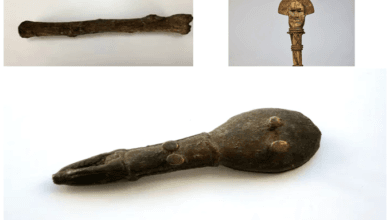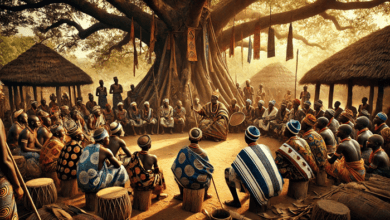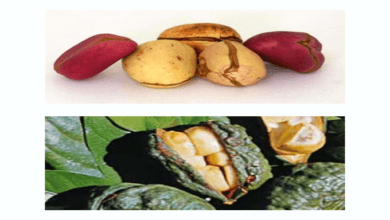Igbo Traditional Marriage Customs
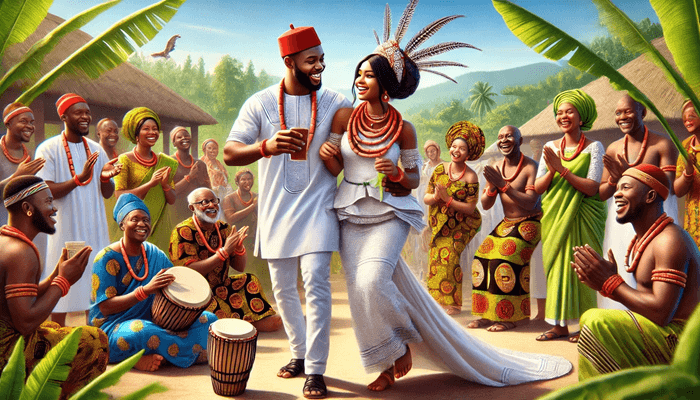
Marriage in Igbo land goes beyond the coming together of two peoples but a crussade into a communal celebration of family relationship, cultural background, traditional values. Traditional Igbo marriage customs, called Igba nkwu Nwanyi (the ceremony of carrying wine), showcase the Igbo‘s reverence for community and family. This article covers the key aspects of the Igbo marriage process from the introduction before marriage and filling out payments before marriage and marriage itself to bring the colourful cultural essence of the Igbo people.
The Role of Marriage in Igbo Culture
Indeed, marriage is an important institution in Igbo culture. It is not just a romantic, but a formal process of merging the families. Marriage allows for the opening of families and has a vested spiritual, social and community interest. Marriage/ Marital Status is held in high regard since they must build their bloodline and fortify social bonds in society.
Importance of Marriage in Igbo Culture
In the Igbo culture, marriage carries deep meaning and is more than the union of two individuals but instead, held a festival celebrating the coming together of families; maintaining community interests and upholding the values and traditions preserved from generations before. These attributes are embedded in the Igbo cosmology and show both the values of family continuity, social responsibility and spiritual connectivity.
1. Family lineage continuity and inheritance

Marriage, to the Igbo, is an important avenue for sustaining and propagating the family lineage. It is seen as a crucial part of creating a next generation to carry on the family name, ideology and customs. So we see children as blessings, and marriage, as a cultural institution, gives legitimacy to the family institution as part of the Igbo family system. That’s why marriage is considered critical to maintaining family heritage in Igbo culture: the priests, shamans and warriors asked to save the people acknowledged that descent matters.
2. Social status and respect
Igbo marriage is a rite of passage that usher a person into full adulthood. A married man is respected for his maturity and responsibility and plays an important role in the community, especially if he has children. Marriage elevates an individual’s stature and power sociologically because it affords them a voice and a network. But even though women enjoy the respect of older women and can be a part of many family and community decision-making, for men, marriage is often a pre-requisite for holding certain positions or for serving in community councils.
3. Strengthening family ties and alliances
Marriage in Igbo culture is not just about the couple, but about two families, and in many cases two communities, becoming one. Marriages help forge bonds, create a network of alliances and mutual support between families, which can extend across several generations. Marriage brings new kin for families and creates pathways for families to define new social and economic cooperation. This network forms an important grounding for the Igbo as it reinforces solidarity and communal/public-mindedness, as well as enabling family systems to support one another in times of duress.
4. Economic and social responsibility
Igbo weddings are much more than a ceremony uniting a couple, they bring together each side of the family for the hope of future stability for the couple. During the traditional dowry process ( Ime ego), for instance, the groom’s family gives gifts to the bride’s family in a show of respect and gratitude, while the bride’s family typically provides items for the couple as they begin their new life. The process emphasises the importance Igbo culture places on economic and social responsibility within marriage, stressing that the union is something into which both families must buy in. There is more responsibility, work and prosperity, all of which are fundamental values of igbo society, as a result of this community emphasis.
5. Spiritual and ancestral link
For Igbo culture, marriage is also a spiritual event. More than a bond between the couple and their family, it is considered a bond with the ancestors. Through the blessings of the elders and customs, the marriage is believed to be a holy union, protected and blessed by spirits of the ancestors. This spiritual thing makes the couple aware of the unifying aspect not only physically and socially but also the spiritual aspect; that their union is in accordance with the cultural expectations and Divine Will.
6. Promotion of heritage and Cultural values
Igbo wedding is a celebration of Igbo identity, from language to Music, Clothing to dance. Each ritual of the marriage process, from the negotiation of the bride price, known as the dowry (Ibo: igba/igba; “to pay”) to the carrying of the wine, serves to perpetuate Igbo customs and heritage, teaching the younger generations the ideals of respect, love and tradition. Igbo weddings preserve these customs that serve as a living expression to the culture so that it continues through the generations.
Stages of Igbo Traditional Marriage
Igbo traditional marriage – When it comes to marriage, the Igbo people traditionally have their own process which entails well-defined stages, each with its customs and expectations.
1. Introduction (Iku Aka or knocking on the door)
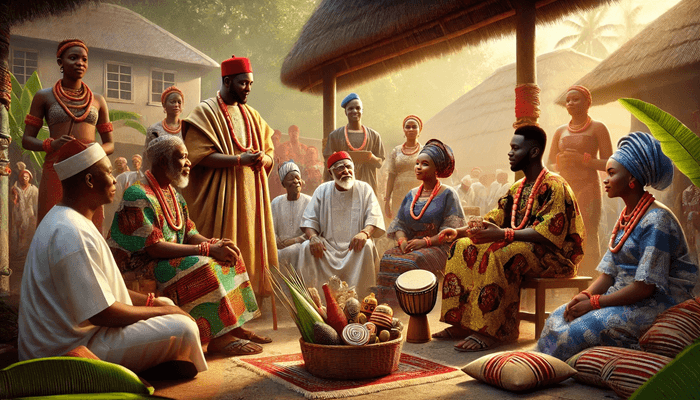
It starts with Iku Aka — ‘knocking on the door’ — the groom’s family visits the bride’s family to formally announce their interest in her. This initial meeting is informal; intended at connecting and mutual goodwill between the families. This visit marks the symbolic exchange, where the groom’s family brings gifts including kola nuts, drinks and sometimes palm wine, as a sign of goodwill and respect.
2. Inqury (Iju Ase)
Thereafter, with the clearance of both respective families, the groom’s family undertakes a short investigation or inqury of the bride’s family, which is usually conducted through a background check. That process involves investigating the family’s character, bloodline and standing. This can help ensure that whoever has the potential as a bride comes from a family that aligns with the values and social norms of the groom’s family.
3. The dowry or bride price (Ime Ego)
Dowry (Ime Ego) One of the most amazing beautiful aspects of traditional Igbo marriage Dowry is a form of respect and appreciation by the groom’s family towards the bride’s family. While this differs between communities, the bride’s parents provide a list of items – money, livestock and household goods – reflecting the groom’s capability of caring for the bride.
The list of items in the dowry may seem long, but it is generally considered symbolic and many families are open to a little negotiation over requirements. In some communities, there are significant leniencies, and the dowry system is more of a paying respect rather than a marketplace. The groom’s family can also haggle — signifying it’s the goodwill that truly matters and not the riches.
The Marriage Ceremony (Igba Nkwu Nwanyi)
The Igbo wedding ceremony is called the Igba Nkwu Nwanyi which literally translates to ‘wine ceremony’ and is a colourful and symbolic occasion between the two families involved especially the bride and groom’s families. This vibrantly colourful ritual is laced with music, dance and other enchanting ceremonies.
1. The Bride’s Dance and Wine-Carrying Ritual
In this segment of the ceremony, the father of the bride presents a cup of palm wine, which she is expected to feed to her husband, as she is wearing a traditional garment and is bedecked with heavy ornaments. She glides through the hall, cup in hand, pretending to search for her husband, who usually dot Franke’s guests. When she discovers him, she gets down on her knees and presents him the cup. By lifting the cup and drinking the wine, the groom is accepting the bride as his wife. This point represents the bride exercising her free will and choice and looking and choosing her husband from among the crowd.
2. Blessings and Prayers
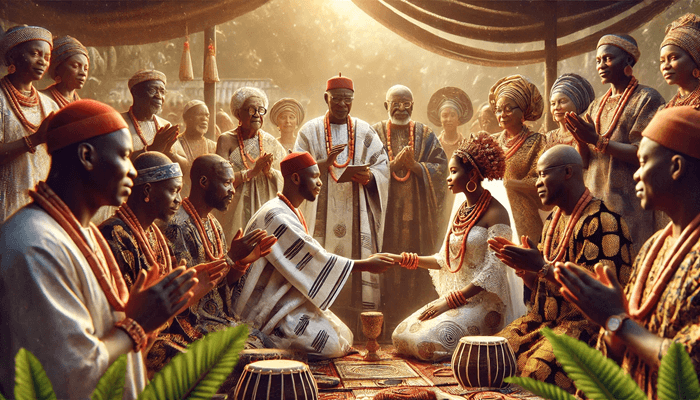
Following the ceremony of carrying the wine, both families join together to bless the marriage. Giving marriage wisdom, prayers or part of the ceremony, elders are highly revered in Igbo society and pray to bless the couple with prosperity, love and peaceful marriage. This act demonstrates support from both the community and the ancestor spirits for the union and should protect it as well as bring blessings.
3. Feasting and Celebration
The celebration culminates in a feast, singing and dancing. Fufu and various soups, jollof rice and other traditional dishes arrive, along with local drinks and palm wine. Igbo music, with its talking drums and flutes, fills the air as friends and families gather to celebrate the new union.
The celebration culminates in a feast, followed by singing and dancing. Traditional foods including jollof rice, fufu, ukwa and assorted soups are followed by local drinks and palm wine. As guests and families gather to celebrate the new union, Igbo music with talking drums and flutes is played, adding to the festive atmosphere.
The Role of Community and Elders
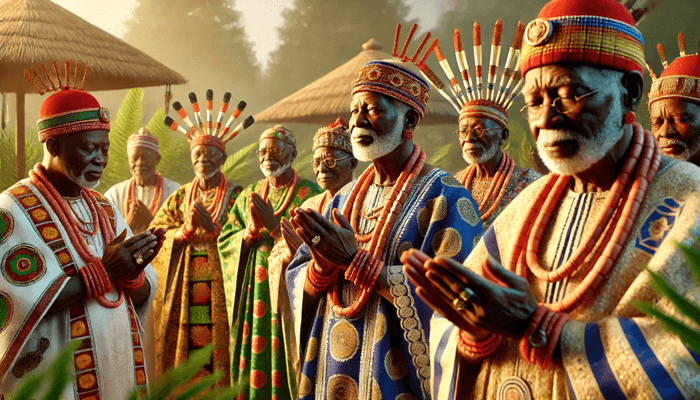
The Igbo philosophy of Igwebuike (meaning ‘union makes strength’) dictates that community and elders are heavily involved in the marriage process. They help ensure understanding and adherence to cultural pratices, advising the couple on the right path. They are also a blessing from the ancestors, a link from the couple to their ancestors lineage and legacy.
Symbolism and Cultural Significance
The culture behind Igbo traditional marriage ceremony is rich in symbolism. This shows the mutual respect because bride price payment process, the bride price ceremony is mean that its not just the family that pays but the two individuals have to agree to married finally the wine-carrying rites is yunno that shows that who you married is the both of individuals choice. The ceremonies also maintain the culture of the community, as the union is seen as the joining of families. The rituals have a fair bit of spirituality, where the couple gets blessings from not just their parents, but also their elders representing a bigger acceptance to the society.
Modern Influences and Adaptations
Before, traditional Igbo wedding practices remained largely unchanged, but with time, it has blended potpourri of traditions and modern influences to create the contemporary weddings we know today. In recent years, numerous young couples also decided on a mix of traditional and western ceremonies, particularly in larger cities. Nevertheless, while customs have evolved in many respects, Igbo families hold on to the customs — and what never changes are the values of love, respect and togetherness that embodies Igbo weddings.
Igbo traditional wedding practises are a profound reflection of the identity, values and reverence to community ties of the Igbo individual. From the very first step, you learn that the entire process has a reflection of aspects of your Igbo culture: there is obedience, respect for family and elders, as well as choice and consent. Particularly in this time of change, igbo weddings celebrate these beloved traditions, bridging ancestors and descendants while ensuring that customs remain both lively and significant.

